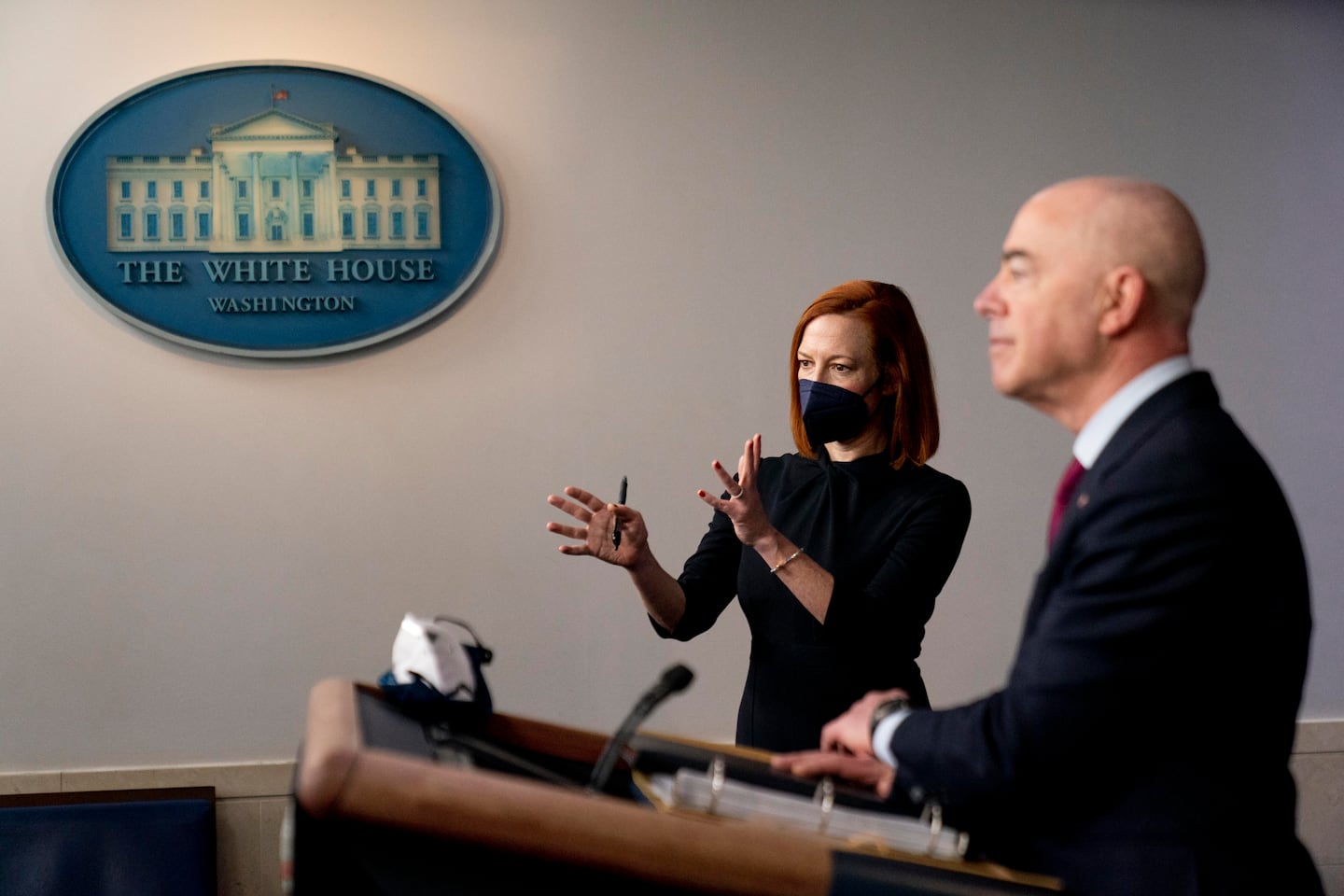The Biden administration finally lands on the obvious border message

Centers for Disease Control and Prevention Director Rochelle Walensky made seemingly big news in early February by saying schools could reopen without vaccinated teachers, but then the White House claimed she was somehow only speaking in her “personal capacity.” It repeatedly avoided directly answering the question even after the CDC guidance became official, instead merely saying teachers should be prioritized for vaccination (which nobody really disputed). Eventually, after two weeks and multiple tortured TV interviews, the White House came out and echoed the guidance. Press secretary Jen Psaki said that while teacher vaccinations should be prioritized, “neither the president nor the vice president believe it is a requirement” and repeated, “It’s not a requirement to reopen schools.”
It was pretty evident what had happened. The pressure from teacher’s groups — a big ally of the Democratic Party and key player in the reopening process — made this a fraught exercise. But for President Biden, who pledged to base decisions on the science and not politics, it sure took the White House a while to embrace the CDC’s scientific conclusion.
In recent weeks, a similar thing has happened with the issues at the southern border.
Twice this month, Homeland Security Secretary Alejandro Mayorkas addressed the surge of migrants by telling them, “Don’t come now.”
The “now” part of that was a shift from how even the last Democratic administration addressed a similar border surge. When unaccompanied minors were flooding to the border in 2014, President Barack Obama told them not to come, period, and that they would be sent back if they did.
Mayorkas made clear each time he said this that it wasn’t just a wayward “now” that he attached to his plea. He instead indicated that this was indeed the administration’s line — that he was pleading for time rather than would-be migrants to change their plans completely.
Earlier this week, he was pressed on whether the better message was “don’t come, period,” and he doubled down.
“Well I think, actually, do not come now,” Mayorkas said. “Give us the time to rebuild the system that was entirely dismantled in the prior administration. And we have in fact begun to rebuild that system.”
He said at a March 1 White House briefing: “We are not saying, ‘Don’t come.’ We are saying, ‘Don’t come now,’ because we will be able to deliver a safe and orderly process to them as quickly as possible.”
Amid criticism that its rhetoric might be feeding the crisis by appearing too welcoming, though, the administration has now pulled a 180.
President Biden seemed to walk back Mayorkas’s comments a bit in an interview with ABC News this week, and now Roberta Jacobson, the White House’s ambassador to the southern border, is saying pretty much the opposite.
“The message isn’t ‘Don’t come now’; it’s ‘Don’t come in this way, ever,’ ” Jacobson, told Reuters on Thursday. “The way to come to the United States is through legal pathways.”
That’s Jacobson effectively agreeing with the premise that Mayorkas explicitly disputed — and just a few days later.
Immigration is a complicated issue, involving lots of pathways to entry. Some migrants might have legitimate asylum claims or family in the United States. But the tenor of the message has apparently shifted rather dramatically.
And much like the kerfuffle over reopening schools and vaccinated teachers, the shift in messaging is somewhat inexplicable and carries obvious political overtones.
Did the White House really think it wouldn’t have to embrace the CDC’s guidance eventually? Perhaps it was buying time and working through the process with stakeholders like teachers. But it didn’t bear much resemblance to Biden’s promises to be guided by the science only.
Similarly, on the border, Mayorkas’s doubling down on “don’t come now” suggests this was a considered talking point. Perhaps the administration was simply a little overzealous in trying to display humanity — especially in light of the Democratic Party’s leftward shift on his issue and the Trump administration’s much-derided separation of families at the border.
But was a message that amounted to “you can come later, just not now” really what it initially decided upon? Even considering the Democratic Party’s shift on immigration, that’s a far cry from where it has been in recent years, and it practically begged for accusations that Biden’s policies were behind the border surge.
This, incidentally, is another area in which the message has shifted. After Jacobson last week conceded that perhaps a more humane policy might have encouraged some to head to the border, Biden disputed that in his ABC News interview this week.
“The idea that Joe Biden said, ‘Come’ — because I heard the other day that they’re coming because they know I’m a nice guy,” Biden said. “Here’s the deal: They’re not.”
In both cases, it took about two weeks to extract a party line from the White House that seemed obvious from the start. These are difficult issues, but the handling of the messaging around them has been anything but seamless.






